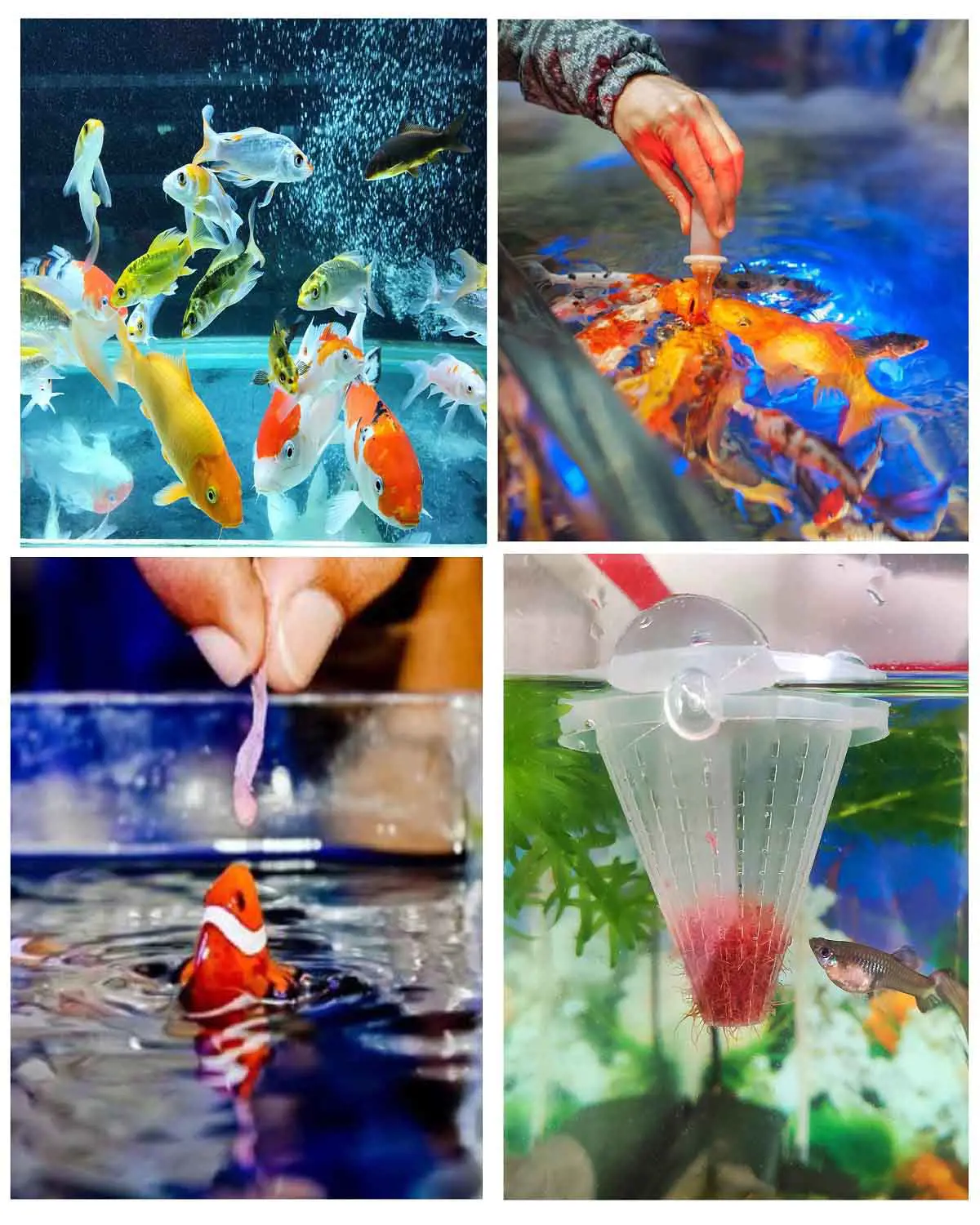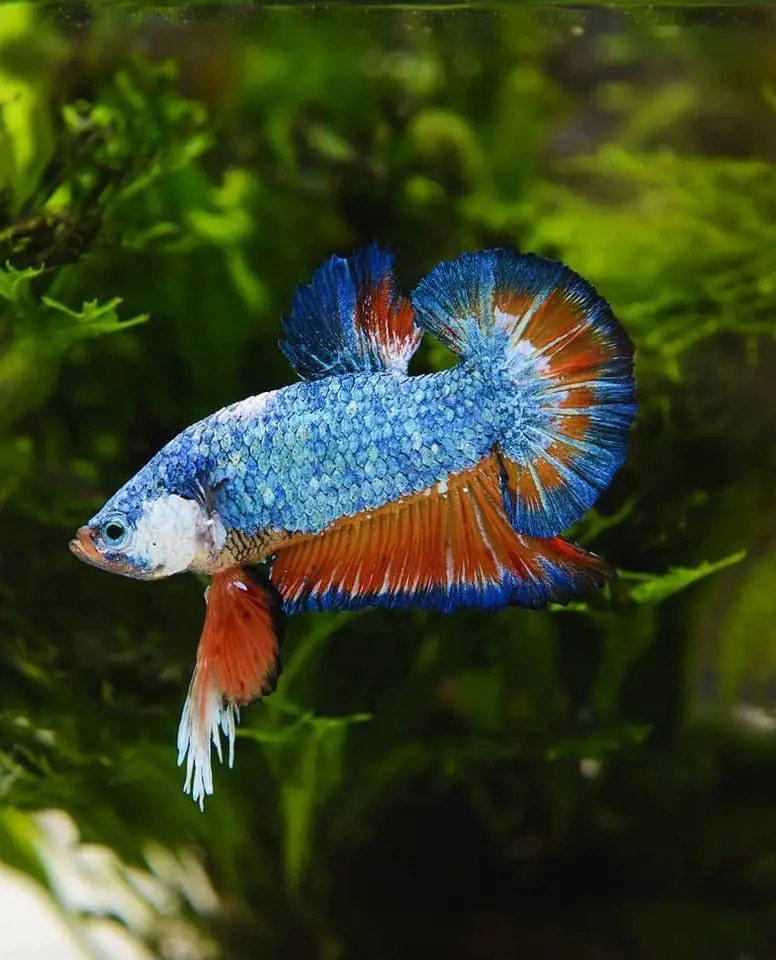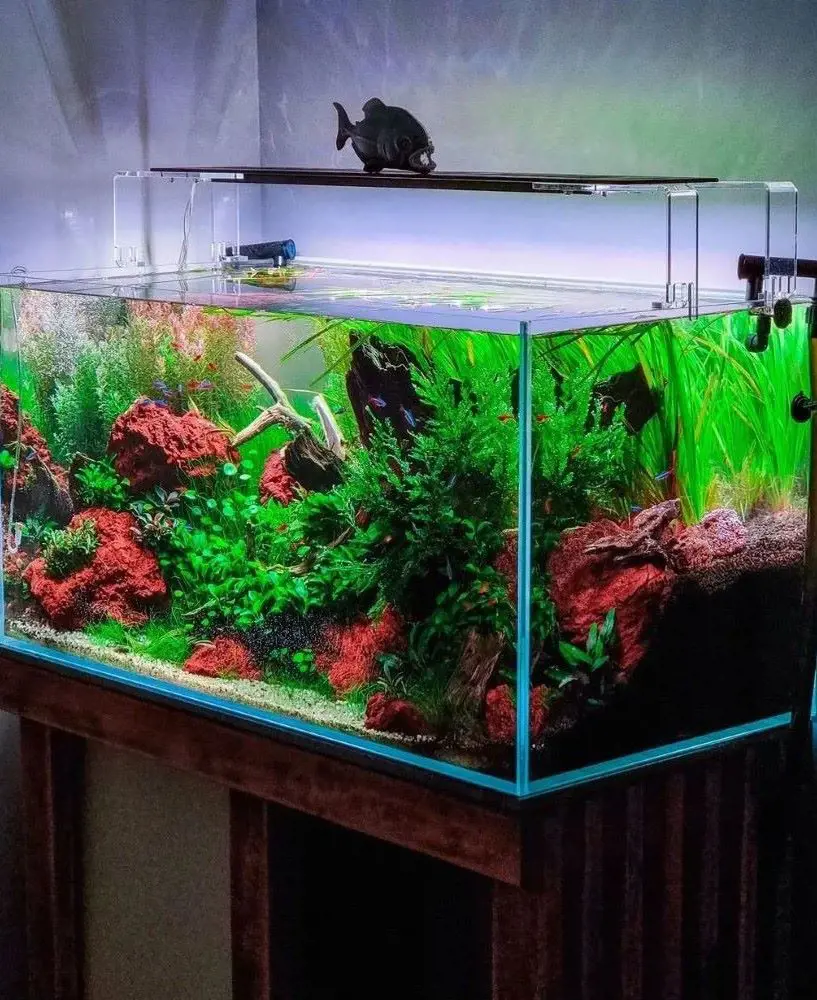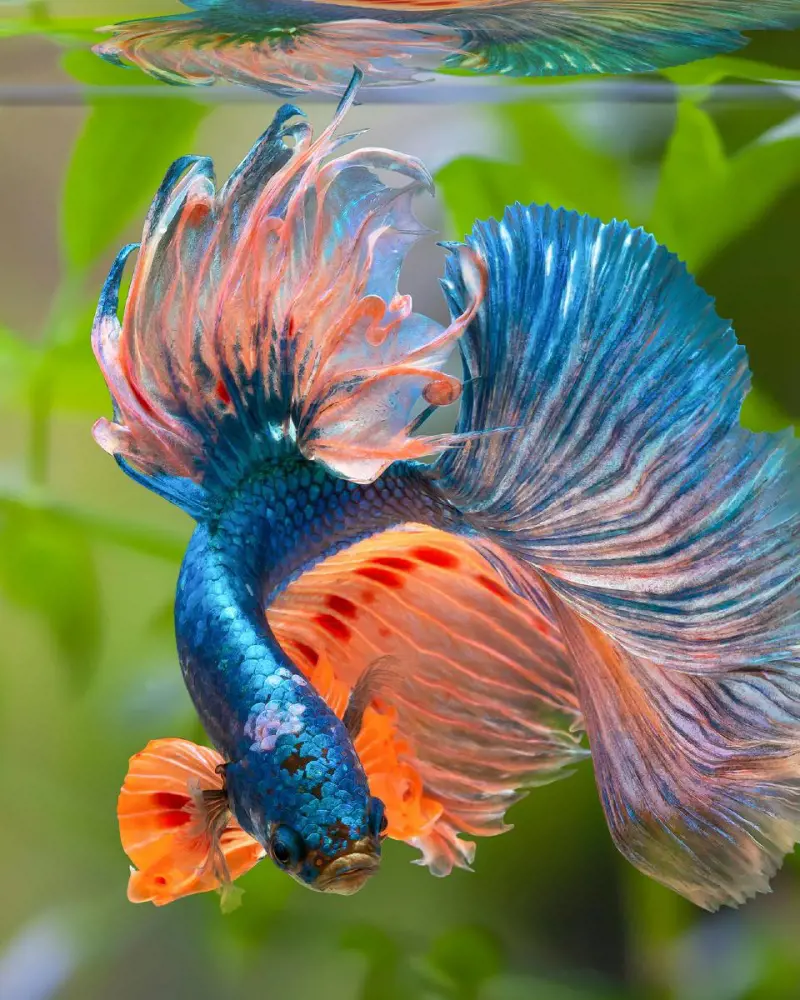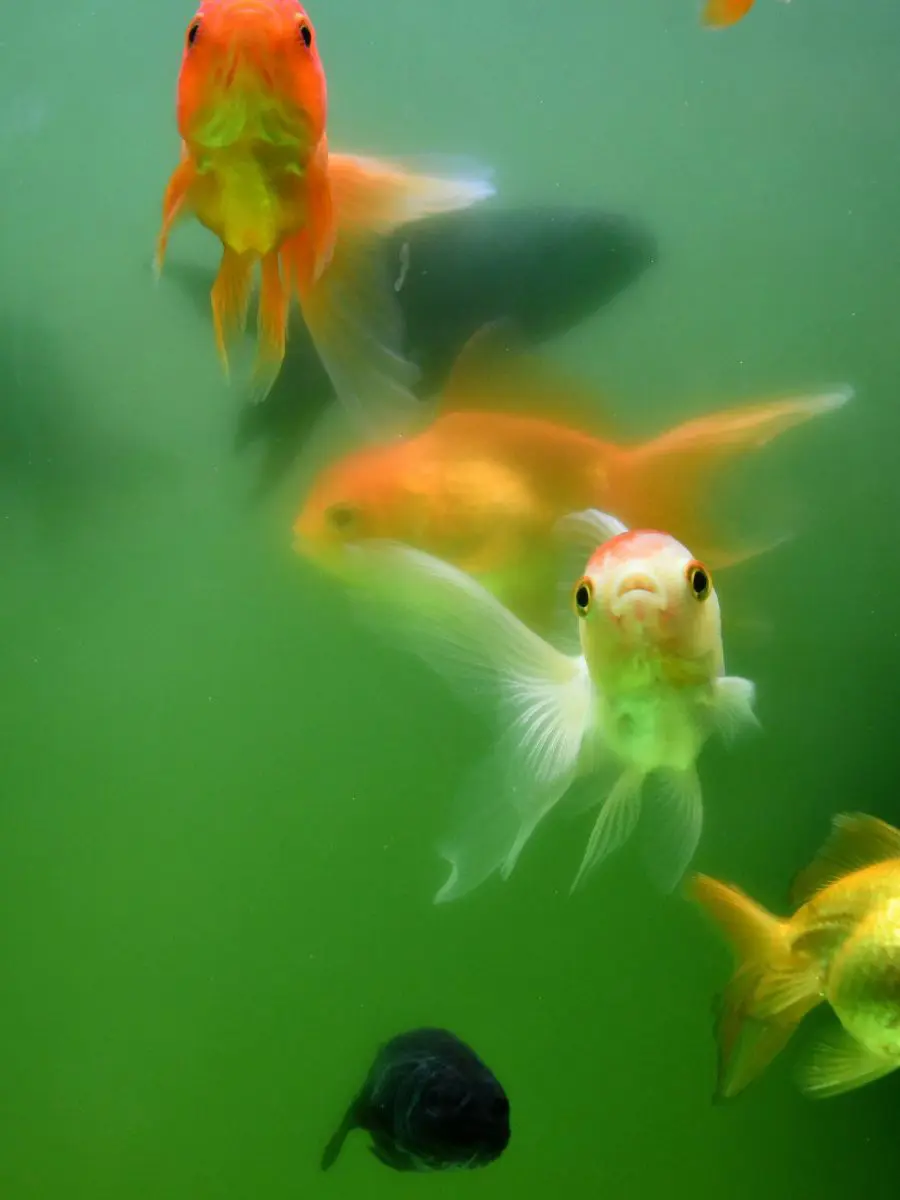Your Guide On Fish Sleeping Habits

Their sleeping behavior is interesting and far different from the terrestrial animal sleeping habits, this paper provides information on the biological adaptation of fish sleeping habits, the evolutionary significance of such behaviors, and various factors impacting rest patterns in natural habitats and aquarium setups.
Some species like to sleep hidden among rocks and plants, while some just float in open space, modifying behaviors to protect themselves at very vulnerable moments from predators, what one has to put across to an aquarium keeper is the need to create an environment that would foster these behaviors by ensuring a natural setup for good sleeping quality and general health.
The Nature of Fish Sleep
Fish sleeping is a very complicated and interesting phenomenon that has been the reason for many studies, characterized by stages and patterns of activity in the brain, like mammals, fish sleeping means a general state of rest.
There is, therefore, no sleep in the classical sense for fish because they do not have eyelids, fish do sleep but they don't shut their eyes as humans do, they show behavioral changes indicating rest, this may consist of just quivering about a point in space, hovering in one spot, or burying amongst plants and rocks.
Research into the sleeping behavior of fish demonstrates that different species sleep very differently, depending on their ecological niches and environment. Such various behaviors underline the adaptability not only of fish but also challenge our conventional notions about sleep when tracing its evolution through various species.
The Importance of Sleep for Fish

This is as important in fish as it is in all other animals for their health and welfare, this aspect of the physiological state is core relevant to a diversity of physiological processes related to the saving of energy, immune function, and general recuperation from the effects of daily activities.
Sleep is one of the crucial ways through which fish save energy, especially when food resources are in short supply and when asleep, fish can lower their metabolic levels and thus channel more energy toward functions other than metabolism, such as growth and reproduction.
When adequately rested, one can regulate stress levels and thus indirectly aid immune function, fish reared with enough rest will be more resistant to disease and environmental stressors, hence they become healthier and live longer.
Influencing Factors
The factors that affect the sleeping patterns of fish include light conditions, water temperature, habitat structure, and social interaction, knowing such parameters will guide the aquarium keepers in properly designing a setting that would ensure a good sleeping pattern for the fish.
Light Conditions
The time of sleep in fish is pretty determined by the light levels and most fishes are light-sensitive and do their routine accordingly, the diurnal species, such as guppies and tetras, usually show their activity during the day and rest at night and catfishes and some species of cichlids are active at night and sleep during the day.
This can be imitated by aquarium owners timing their lighting systems in the aquarium so that fish get a day-night cycle, similar to that in their natural habitat, suitable light maintenance leads to the showing of natural behavior and, thus sufficient sleep of the fish.
Water Temperature
The temperatures further affect fish metabolism and sleep and temperate ranges drive good, normal behavior with regular sleeping patterns, if the water temperature strays way off the optimal range for any species, then stress will set in, disturbing their sleeping/wake cycles.
That is very important to maintain stable conditions for the temperature when dealing with fish in an aquarium, a precise temperature around one needs to be attained by constant temperature measurements and correct heating or cooling devices.
Habitat Structure
One major controlling factor for sleeping behavior in fish is habitat complexity, it is in such environments, full of plants and rocks with plenty of hiding places, that fish rest in hotel-like facilities with a guarantee of a good night's sleep, it becomes regular among fishes that experience safety in their environment.
Ensuring adequate hiding places and structures will allow the creation of diverse and enriching environments within aquariums, which foster good sleep and this would be in the form of plants, caves, and other decorations necessary to depict their natural habitat.
Sleep Patterns Across Different Fish Species

These patterns differ from one species to another, habitats, and even ecological functions, the section spells out some striking examples of sleep behavior for just a few species of fish to highlight their diversity in sleep adaptations.
Most species are nocturnal, such as catfish and some of the cichlid species, these fishes develop active hunting behavior and even socialization during the night, thanks to their acute sense organs, which help them move and find food in darkness and the sleeping patterns avoid predators when they are most vulnerable when resting by day.
Some fish show unique sleeping behaviors, such as parrotfish, which encapsulates itself in a mucous cocoon when it is sleeping which keeps it safe from predators and parasites and is evidence that fish have evolved some very diverse ways of increasing their chances of survival while resting.
Sleep Deprivation and Its Effects
Interestingly, when fish are not given enough rest, apparently the wrong behaviors, aggression, and social withdrawal occur all together at once, stress escalates into a depressed immune system and vulnerability to a disease so consequently, the right resting environments for the fish are very important.
If the fish are not given adequate rest, stress and anxiety will increase and in addition, it can interfere with fish's cognitive capabilities and learning, some studies have found that in fish deprived of adequate sleep, navigation skills, foraging, and social behavior all appear to be compromised,
This eventually decreases their survival time and the reproductive success of the fish, which could also be compromised as adequate sleep is associated with modulating hormones and other factors in the reproductive biome of fishes.
Tips for Promoting Healthy Sleep
Sleep is important for all animals including humans and as well as fish too, the following may help in inducing healthy sleeping patterns in aquarium fish:
Create a Natural Environment: There should be numerous places and plants for the fish to hide and retreat to when they go to sleep, it makes them feel safe, like in their natural environment, which will trigger normal sleep patterns and environment enrichment promotes better health and develops their natural behaviors.
Keep a Constant Light Schedule: Establish a regular light cycle in your aquarium, so run the lights on and off at the same time every day to simulate day and night, it will help engage the fish's internal clocks and hence ensure good sleep.
Monitoring Water Temperature: Ensure that the temperature of the water is appropriate for your fish so check the ideal temperature frequently for healthy metabolism and sleep patterns and stable water conditions go far toward making fish healthy.
No overcrowding: Overcrowding stresses out the fish, hence changing their sleeping behavior, allowing enough space where every fish can construct or feel like it has a territory or a place for resting, and a well-laid-out aquarium supports the natural behavior of the fish.
Avoid agitations: Avoid sudden, loud noises or fast movements next to the aquarium during the night, and allow a quiet environment in which fish will feel safe and sleepy this shall help in minimizing the stressors and promoting good quality sleep.
Comparison of Fish Sleep To Other Animals

Fish do not have the neurologic structures that have been associated, through evolution, with REM sleep in humans but do go into a restful state with decreased metabolic rates and lower sensory responsiveness.
Some studies have shown that brain activity in some species of fish is rather similar to that of mammals in their sleep phase, suggesting that their sleep phase is probably something more complex than assumed so far.
The majority of fish appear to depend on a light/dark cycle guiding their sleep/wake patterns, while in land animals, there are mostly more complicated cues, like social contacts or seasonal changes, this divergence calls for a deeper understanding of how different species adapt their sleep behaviors to meet their specific ecological demands.
How Water Quality Affects Fish Sleep Habits
It is a very important aspect of fish health and also plays a part in securing their sleeping habits a very needed combination of variables including, temperature, pH, dissolved oxygen level, and amounts of organic pollutants will determine how conducive the conditions could be for a fish to sleep.
Metabolism
As the temperature increases, so do metabolic rates, which may be one reason behind the change in normal sleep patterns, the cold temperatures that cause lethargy give the fish a harrowing time to showcase natural behaviors associated with rest so proper temperature maintenance will be critical in ensuring smooth sleep because all the biological activities of the fish will be well controlled.
Oxygen
Fish require a lot of oxygen, which is used in large quantities for metabolic purposes, including the period one is asleep and low levels of oxygen would lead to stress and restlessness, changing the sleeping pattern. Well-aerated water, on the other hand, ensures proper metabolic functions, which in turn provides conditions for fish to comfortably sleep.
Toxicity and pH
Most of the fish have a specific pH range they can comfortably withstand; beyond this range, deviations in their immediate environment may result in stressful conditions and hence a disabled pattern of sleeping behaviors. Toxins in the water, such as ammonia, nitrites, and water with heavy metals, are known to hamper the sleeping process of the fish.
Impact of Contaminants and Stressors
Ecologic stressors and contaminants most likely impact the sleep behaviors of fish through excess nutrients chemical by-products and new pathogens, they increase stressors that would disturb the normal pattern of sleep, and the fish will most of the time act erratically, decrease feeding, and show poor sleep quality.
The Impact of Captivity On Fish Sleep Behaviors

The predictability of the sleep behaviors is seriously convulsed by the captivity effects on them and evidence has indicated that fish, under normal habitats, have a certain kind of sleep controlled by light/dark cycles, habitat complexity, and ecological interactions.
The irregular sleep/wake cycle resulting from artificial lighting and other forms of stressors that come along with captivity like competition for resources, would impede the capacity to rest well in the captive setting.
This can be a secretive place inside an aquarium, encouraging anxiety and altering the sleeping pattern of fish so that they may feel much more vulnerable. Such stress may mean sleeplessness, which gives way to restlessness, reduced feeding, and poor health, a captivity environment without security harms their instincts and makes it very hard for them to sleep soundly.
Fish Sleep And Its Connection To Predator
Fish sleep is closely related to predator-prey dynamics, which feeds into the whole process of driving behavioral patterns, habitat choice, and survival strategies that can be adopted by fish, this sleep will take on unique patterns that reflect the need to balance rest with vigilance against any potential threats.
Understanding how sleep affects how fish behave and, by extension, how an ecosystem as a whole functions must make one appreciate that there is an integral link between the two, sleep in fish primarily comprises drowsiness and reduced response, in which fish become more vulnerable to predators.
Some fish prefer sleeping in sheltered areas, in locations like rocks, plants, or coral, so they can avoid open areas where they are more likely to be seen by predators and others may adopt a strategy of sleeping during periods of lower predation risk, like at night, and remain alert during the day and this adaptability shows how environmental factors are the most important drivers of sleep patterns in fish.
The Role of Parasitism In Fish Sleep Disruption

Parasitism can turn up the agitation considerably in the pattern of sleep of fish and their general health and physiological changes, along with neurological alteration, may interfere with sleep, which consequently alters the cycle of sleep-wake patterns, decreases the quality of sleep, and increases vulnerability to predators.
Some even manipulate host behavior to improve their chances of transmission, usually making fish easier prey, addition has been made that such heightened stress may result in fragmented sleep with a decrease in rest periods, it weakens the immune system and draws a great deal of energy away from restful sleep to then cause health problems.
The control of parasitism is of importance to fish health, especially in aquaculture, because the applied stocking densities most often favor the growth of parasites, knowledge is contributed regarding how parasitism affects sleep to the development of effective strategies for wild and captive fish welfare.
Top Lists

